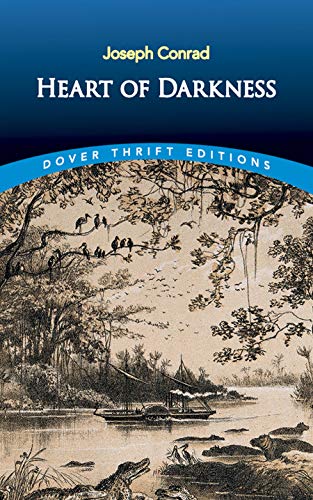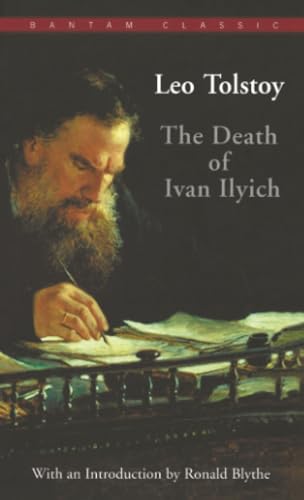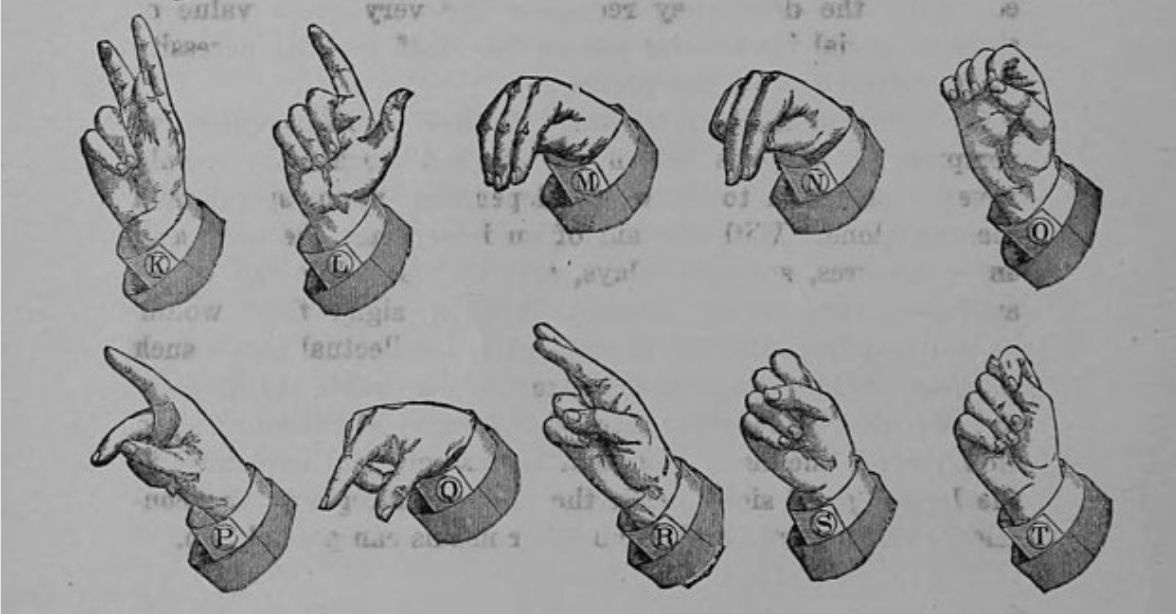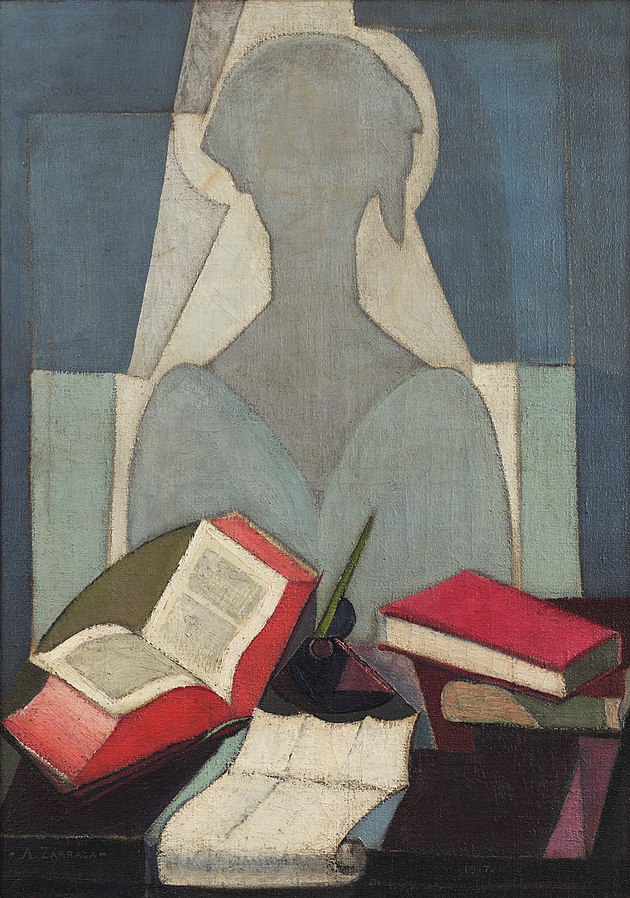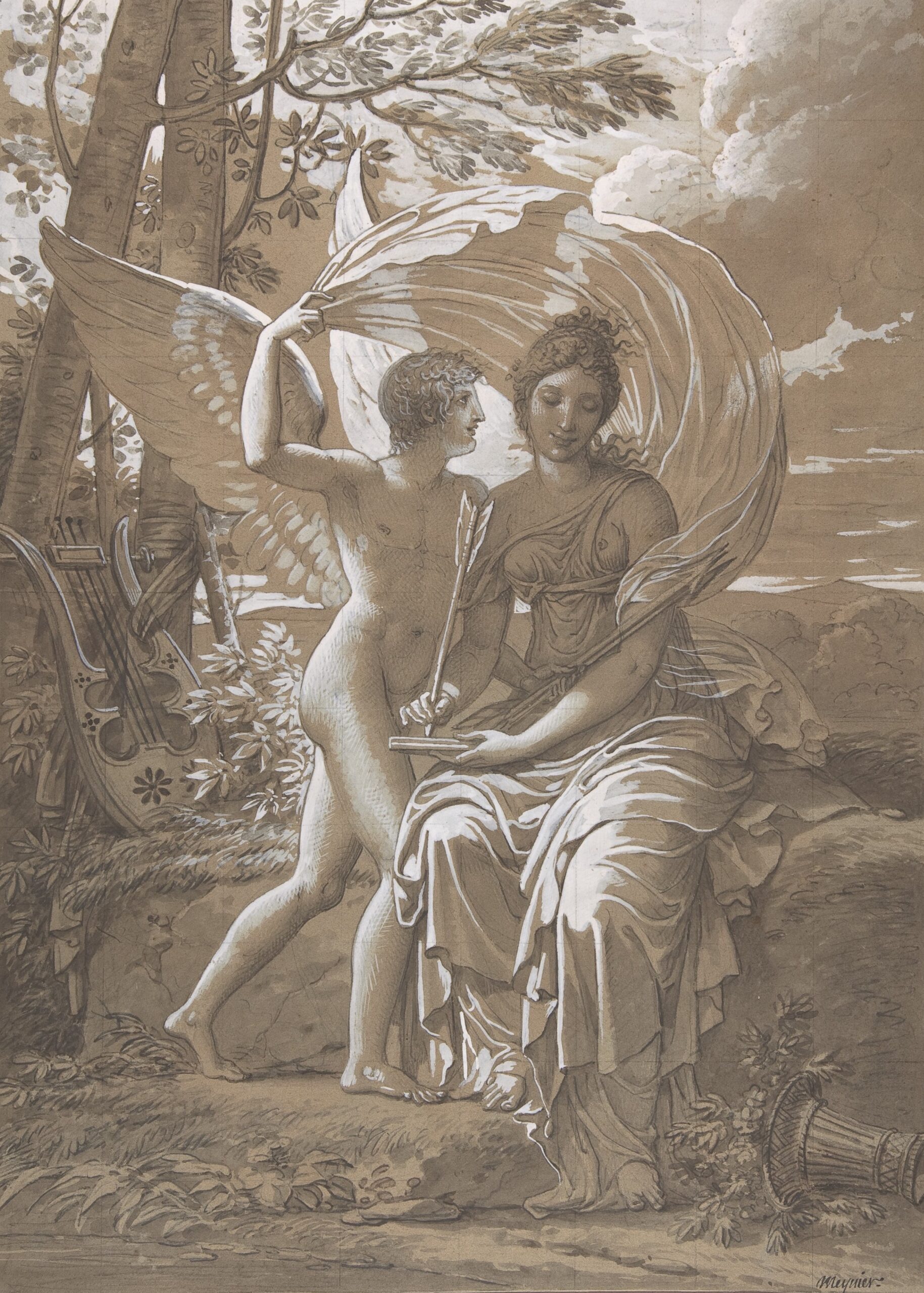This completes a series of essays on craft that I privately refer to as “The Art of…: The Series.” (You can see why the name has remained private.) Previous entries include Epigraphs, the Opening Sentence, Close Writing, and Chapters.
(Spoilers, spoilers, blah, blah, blah.)
 There are fewer famous closing lines than there are opening ones, probably because we start reading more books than we finish, i.e., the options are sparser. Not to mention how much context is sometimes required to understand the meaning (literal and figurative) of a book’s ending. You can’t just say: Hey, check this out: “He loved Big Brother.” To those unfamiliar with George Orwell’s 1984, what the hell would this mean? Some man is fan of reality television? Also, there is less pressure on a final line, isn’t there? If you’ve managed to keep a reader’s attention until the end, then you’ve already accomplished a great deal. In other words, the success of a book doesn’t exactly hinge on the quality of the last sentence, whereas an opening must rivet, pull, hook, excite, invite.
There are fewer famous closing lines than there are opening ones, probably because we start reading more books than we finish, i.e., the options are sparser. Not to mention how much context is sometimes required to understand the meaning (literal and figurative) of a book’s ending. You can’t just say: Hey, check this out: “He loved Big Brother.” To those unfamiliar with George Orwell’s 1984, what the hell would this mean? Some man is fan of reality television? Also, there is less pressure on a final line, isn’t there? If you’ve managed to keep a reader’s attention until the end, then you’ve already accomplished a great deal. In other words, the success of a book doesn’t exactly hinge on the quality of the last sentence, whereas an opening must rivet, pull, hook, excite, invite.


 The more well-known closers tend to be lyrical passages of direct conclusion. A Tale of Two Cities features the oft-cited, “It is a far, far better thing that I do, than I have ever done; it is a far, far better rest that I go to than I have ever known,” and The Great Gatsby’s equally as referenced (most recently in the title of Maureen Corrigan’s book on Gatsby, And So We Read On), “So we beat on, boats against the current, borne back ceaselessly into the past.” Other notable finishers spell out the meaning of the title, as in John Irving’s The World According to Garp, which ends with Garp’s daughter, considering her father: “In the world according to her father, Jenny Garp knew, we must have energy. Her famous grandmother, Jenny Fields, once thought of us as Externals, Vital Organs, Absentees, and Goners. But in the world according to Garp, we are all terminal cases.” Or in Joseph Conrad’s Heart of Darkness, which ends, “The offing was barred by a black bank of clouds, and the tranquil waterway leading to the uttermost ends of the earth flowed sombre under an overcast sky–seemed to lead into the heart of an immense darkness.” And finally, Gabriel García Márquez’s masterpiece One Hundred Years of Solitude (one of the few, like Gatsby, to have a famous opening and closing):
The more well-known closers tend to be lyrical passages of direct conclusion. A Tale of Two Cities features the oft-cited, “It is a far, far better thing that I do, than I have ever done; it is a far, far better rest that I go to than I have ever known,” and The Great Gatsby’s equally as referenced (most recently in the title of Maureen Corrigan’s book on Gatsby, And So We Read On), “So we beat on, boats against the current, borne back ceaselessly into the past.” Other notable finishers spell out the meaning of the title, as in John Irving’s The World According to Garp, which ends with Garp’s daughter, considering her father: “In the world according to her father, Jenny Garp knew, we must have energy. Her famous grandmother, Jenny Fields, once thought of us as Externals, Vital Organs, Absentees, and Goners. But in the world according to Garp, we are all terminal cases.” Or in Joseph Conrad’s Heart of Darkness, which ends, “The offing was barred by a black bank of clouds, and the tranquil waterway leading to the uttermost ends of the earth flowed sombre under an overcast sky–seemed to lead into the heart of an immense darkness.” And finally, Gabriel García Márquez’s masterpiece One Hundred Years of Solitude (one of the few, like Gatsby, to have a famous opening and closing):
Before reaching the final line, however, he had already understood that he would never leave that room, for it was foreseen that the city of mirrors (or mirages) would be wiped out by the wind and exiled from the memory of men at the precise moment when Aureliano Babilonia would finish deciphering the parchments, and that everything written on them was unrepeatable since time immemorial and forever more, because races condemned to one hundred years of solitude did not have a second opportunity on earth.
My personal favorite among the famous closers is Ernest Hemingway’s “Isn’t it pretty to think so?” from The Sun Also Rises. This line not only aptly summarizes the themes of the novel but also stands as a wonderfully evocative statement on life in general — the beauty of our imagination is rarely matched by the ugliness of reality.
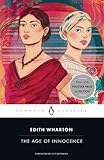 Most great last lines are not extractable or isolatable quotations; as I said, they require context. And sometimes their beauty comes more from what’s literally being described than the efficacy of the language. The ending of Edith Wharton’s The Age of Innocence isn’t a poetic line in and of itself. Its power comes from the scene it ends. Newland Archer, older, now a widower, has the chance to see Madame Olenska again, she being the woman, as Newland’s son has it, “you’d have chucked everything for: only you didn’t.” When they go to meet her, Newland opts to sit outside the hotel instead, saying, “perhaps I shall follow you.” He stares at the balcony he knows to be Olenska’s, hoping to catch a glimpse. But he only sees the servant close the shutters. Then: “At that, as if it had been the signal he waited for, Newland Archer got up slowly and walked back alone to his hotel.” The tragedy in this line is inextricably linked to the scene it concludes. Wharton’s success lies in right ending as much as the words that describe it.
Most great last lines are not extractable or isolatable quotations; as I said, they require context. And sometimes their beauty comes more from what’s literally being described than the efficacy of the language. The ending of Edith Wharton’s The Age of Innocence isn’t a poetic line in and of itself. Its power comes from the scene it ends. Newland Archer, older, now a widower, has the chance to see Madame Olenska again, she being the woman, as Newland’s son has it, “you’d have chucked everything for: only you didn’t.” When they go to meet her, Newland opts to sit outside the hotel instead, saying, “perhaps I shall follow you.” He stares at the balcony he knows to be Olenska’s, hoping to catch a glimpse. But he only sees the servant close the shutters. Then: “At that, as if it had been the signal he waited for, Newland Archer got up slowly and walked back alone to his hotel.” The tragedy in this line is inextricably linked to the scene it concludes. Wharton’s success lies in right ending as much as the words that describe it.

 Leo Tolstoy’s ender in The Death of Ivan Ilych is also simple but masterful: “He drew in a breath, broke off in the middle of it, stretched himself out, and died.” This short novel deals with Ilych’s life in a plain style, refusing to make death abstract, and the ending emphasizes that. Death is a stark fact, one Ilych was not prepared for, and, unfortunately, it happens as easily and as unceremoniously as Tolstoy’s final sentence. Philip Roth, riffing on Ivan Ilych for his short parable Everyman, takes his unnamed protagonist through all the sicknesses of his life, using the close-calls of death as a way to narrate a life, for what is life, after all, than the continual resistance to death? His everyman perishes thusly: “He went under feeling far from felled, anything but doomed, eager yet again to be fulfilled, but nonetheless, he never woke up. Cardiac arrest. He was no more, freed from being, entering into nowhere without even knowing. Just as he’d feared from the start.”
Leo Tolstoy’s ender in The Death of Ivan Ilych is also simple but masterful: “He drew in a breath, broke off in the middle of it, stretched himself out, and died.” This short novel deals with Ilych’s life in a plain style, refusing to make death abstract, and the ending emphasizes that. Death is a stark fact, one Ilych was not prepared for, and, unfortunately, it happens as easily and as unceremoniously as Tolstoy’s final sentence. Philip Roth, riffing on Ivan Ilych for his short parable Everyman, takes his unnamed protagonist through all the sicknesses of his life, using the close-calls of death as a way to narrate a life, for what is life, after all, than the continual resistance to death? His everyman perishes thusly: “He went under feeling far from felled, anything but doomed, eager yet again to be fulfilled, but nonetheless, he never woke up. Cardiac arrest. He was no more, freed from being, entering into nowhere without even knowing. Just as he’d feared from the start.”

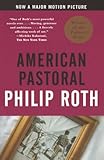 Roth is particularly good as final lines (as well as opening ones). American Pastoral, after delicately and intricately describing how the Swede’s family life literally explodes from the blast of his Patty Hearst-like daughter, ends with distinctly American questions: “And what is wrong with their life? What on earth is less reprehensible than the life of the Levovs?” But maybe my favorite Roth ender comes from, appropriately, his final novel. Nemesis tells the story of a Polio outbreak in New Jersey in 1944. Bucky Cantor, a well-intentioned weightlifter and javelin-thrower, tries valiantly to help his community as the epidemic ravages its citizens. Eventually Bucky flees New Jersey for Indian Hill, a summer camp where his girlfriend Marcia’s a counselor. The fresh air promises health, a safe haven, but soon one of the counselors gets sick, and Bucky comes to believe that he is the carrier who introduced polio to the camp. When he, too, falls ill and has to be hospitalized, he ends things with Marcia, his love, because, “I owed her her freedom…and I gave it to her. I didn’t want the girl to feel stuck with me. I didn’t want to ruin her life. She hadn’t fallen in love with a cripple, and she shouldn’t be stuck with one.” Years later, a former student of Bucky’s from New Jersey runs into him. The sight of the former weightlifter with a “withered left arm and a useless left hand,” wearing a “full leg brace beneath his trousers,” is shocking, but even more so is his deep-seated bitterness. “God killed my mother in childbirth,” he says, “God gave me a thief for a father. In my early twenties, God gave me polio that I in turn gave to at least a dozen kids, probably more…How bitter should I be? You tell me.” The books ends with the former student’s vivid recollection of Bucky at his peak, when the kids would watch him throw his javelin:
Roth is particularly good as final lines (as well as opening ones). American Pastoral, after delicately and intricately describing how the Swede’s family life literally explodes from the blast of his Patty Hearst-like daughter, ends with distinctly American questions: “And what is wrong with their life? What on earth is less reprehensible than the life of the Levovs?” But maybe my favorite Roth ender comes from, appropriately, his final novel. Nemesis tells the story of a Polio outbreak in New Jersey in 1944. Bucky Cantor, a well-intentioned weightlifter and javelin-thrower, tries valiantly to help his community as the epidemic ravages its citizens. Eventually Bucky flees New Jersey for Indian Hill, a summer camp where his girlfriend Marcia’s a counselor. The fresh air promises health, a safe haven, but soon one of the counselors gets sick, and Bucky comes to believe that he is the carrier who introduced polio to the camp. When he, too, falls ill and has to be hospitalized, he ends things with Marcia, his love, because, “I owed her her freedom…and I gave it to her. I didn’t want the girl to feel stuck with me. I didn’t want to ruin her life. She hadn’t fallen in love with a cripple, and she shouldn’t be stuck with one.” Years later, a former student of Bucky’s from New Jersey runs into him. The sight of the former weightlifter with a “withered left arm and a useless left hand,” wearing a “full leg brace beneath his trousers,” is shocking, but even more so is his deep-seated bitterness. “God killed my mother in childbirth,” he says, “God gave me a thief for a father. In my early twenties, God gave me polio that I in turn gave to at least a dozen kids, probably more…How bitter should I be? You tell me.” The books ends with the former student’s vivid recollection of Bucky at his peak, when the kids would watch him throw his javelin:
He threw the javelin repeatedly that afternoon, each throw smooth and powerful, each throw accompanied by that resounding mingling of a shout and a grunt, and each, to our delight, landing several yards farther down the field than the last. Running with the javelin aloft, stretching his throwing arm back behind his body, bringing the throwing arm through to release the javelin high over his shoulder — and releasing it then like an explosion — he seemed to us invincible.
Roth’s last group of short novels (Everyman, Indignation, The Humbling and Nemesis, collectively referred to as Nemeses) deal with this theme, that of the delicacy and vulnerability of us all, how, despite our intentions, regardless of our ethics or our choices, life can destroy you whenever it wants, and for whatever reason.
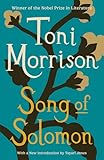 Toni Morrison can also open and close a book with power. Her Song of Solomon takes the hero, Milkman, to the town of Shalimar in search of gold. Milkman’s best friend, Guitar, tries to kill him but instead kills Pilate, Milkman’s mystical sister. After singing to her as she dies, Milkman realizes “why he loved her so. Without ever leaving the ground, she could fly.” The promise (and failure) of human flight runs throughout Song of Solomon, beginning with its inimitable opening line: “The North Carolina Mutual Life Insurance agent promised to fly from Mercy to the other side of Lake Superior at three o’clock.” Whereas this man’s promise proves to be nothing more than a boast, Pilate flies in the truer, more significant sense. Milkman goes after Guitar after Pilate dies, and the novel concludes both ambiguously and conclusively:
Toni Morrison can also open and close a book with power. Her Song of Solomon takes the hero, Milkman, to the town of Shalimar in search of gold. Milkman’s best friend, Guitar, tries to kill him but instead kills Pilate, Milkman’s mystical sister. After singing to her as she dies, Milkman realizes “why he loved her so. Without ever leaving the ground, she could fly.” The promise (and failure) of human flight runs throughout Song of Solomon, beginning with its inimitable opening line: “The North Carolina Mutual Life Insurance agent promised to fly from Mercy to the other side of Lake Superior at three o’clock.” Whereas this man’s promise proves to be nothing more than a boast, Pilate flies in the truer, more significant sense. Milkman goes after Guitar after Pilate dies, and the novel concludes both ambiguously and conclusively:
Milkman stopped waving and narrowed his eyes. He could just make out Guitar’s head and shoulders in the dark. “You want my life?” Milkman was not shouting now. “You need it? Here.” Without wiping away the tears, taking a deep breath, or even bending his knees — he leaped. As fleet and bright as a lodestar he wheeled toward Guitar and it did not matter which one of them would give up the ghost in the killing arms of his brother. For now he knew what Shalimar knew: If you surrendered to the air, you could ride it.
It is uncertain as to which man emerges victorious, but the real meaning here is in Milkman’s realization about the air. Flying is impossible for a person to do literally, and Milkman finally sees this– — his stubborn pride is released as he lets himself be guided by the “air,” or, more aptly, the right choice. Morrison’s books nearly always hint at magical realism, and sometimes they deliver it, but usually the magic stays where it lives, in the imagination, and her characters must find other ways to save themselves.
Notice in these last few examples how neatly their authors are able to unify the themes and the plots of the books into a distilled moment. Tolstoy’s frank style reinforces the matter-of-factness of death, Roth’s childhood memory evokes the naïve belief in human power, and Morrison’s “riding the air” answers a question set up by the first line. The skill here is in giving the sense of a cohesive whole, of arriving at a place that is both surprising and inevitable. The surprise comes as you read it; the feeling of inevitability comes after you’ve considered the ending in the context of the entire narrative. Ivan Ilych is coldly pronounced dead on page one, but his death doesn’t happen in a scene until the finale, where we now feel empathy. Roth reminds us of Bucky’s strength in his youth, a fact made poignant the sight of him as an older, decrepit adult. A man promises to fly who can’t, and then Milkman finds his own way of doing it.
 Other than bringing a character to a pivotal point, or circling back to the beginning, and besides lyricism that summarizes the novel’s point of view, what are other ways novelists end their books in a satisfactory manner? Some choose to simply not end their novels at all. James Joyce’s Finnegans Wake has a circular structure in which the last sentence (which ends mid-sentence) loops back to complete the opening one (which begins mid-sentence). But since I haven’t read that book nor do I believe that I could rightfully analyze it, I’ll stick here with books within my intellectual capabilities. (Joyce has the distinct honor of having not one but three famous endings: Finnegans Wake, Molly Bloom’s soliloquy in Ulysses, and the perfect final sentence of his story “The Dead.”) Bret Easton Ellis’s The Rules of Attraction also starts and concludes in medias sententia. Ellis’s aim, rather than suggesting circularity, is to suggest that we as readers have only momentarily joined a narrative that has been going on long before and will continue long after. Plus, his college-age characters are manic, erratic, and uncertain of everything. Ellis’s choice to cut them off is appropriate: they would have continued forever had he not done so. David Foster Wallace’s first novel, The Broom of the System, (published a month before his 25th birthday) is a playful, extended riff on Wittgensteinian theories of language. (This is, mind, a novel in which a talking cockatiel named Vlad the Impaler ends up proselytizing on a Christian television network.) The final line is actually dialogue, spoken by Rick Vigorous, the protagonist Lenore’s boss and lover: “You can trust me,” R.V. says, watching her hand. “I’m a man of my”. For a narrative focused on language (most notably Ludwig Wittgenstein’s assertion that philosophical problems arise because of confusions of language stemming from false assumptions about how language works) to end by omitting the word ‘word’ — which is doubly meaningful as here the term denotes trust, an oath, the kind of certainty the book spends much energy making sure we don’t forget is linguistically suspect if not impossible — may seem too clever by half, but by the time a reader reaches this point, no other ending would seem appropriate (certainly not as pointed).
Other than bringing a character to a pivotal point, or circling back to the beginning, and besides lyricism that summarizes the novel’s point of view, what are other ways novelists end their books in a satisfactory manner? Some choose to simply not end their novels at all. James Joyce’s Finnegans Wake has a circular structure in which the last sentence (which ends mid-sentence) loops back to complete the opening one (which begins mid-sentence). But since I haven’t read that book nor do I believe that I could rightfully analyze it, I’ll stick here with books within my intellectual capabilities. (Joyce has the distinct honor of having not one but three famous endings: Finnegans Wake, Molly Bloom’s soliloquy in Ulysses, and the perfect final sentence of his story “The Dead.”) Bret Easton Ellis’s The Rules of Attraction also starts and concludes in medias sententia. Ellis’s aim, rather than suggesting circularity, is to suggest that we as readers have only momentarily joined a narrative that has been going on long before and will continue long after. Plus, his college-age characters are manic, erratic, and uncertain of everything. Ellis’s choice to cut them off is appropriate: they would have continued forever had he not done so. David Foster Wallace’s first novel, The Broom of the System, (published a month before his 25th birthday) is a playful, extended riff on Wittgensteinian theories of language. (This is, mind, a novel in which a talking cockatiel named Vlad the Impaler ends up proselytizing on a Christian television network.) The final line is actually dialogue, spoken by Rick Vigorous, the protagonist Lenore’s boss and lover: “You can trust me,” R.V. says, watching her hand. “I’m a man of my”. For a narrative focused on language (most notably Ludwig Wittgenstein’s assertion that philosophical problems arise because of confusions of language stemming from false assumptions about how language works) to end by omitting the word ‘word’ — which is doubly meaningful as here the term denotes trust, an oath, the kind of certainty the book spends much energy making sure we don’t forget is linguistically suspect if not impossible — may seem too clever by half, but by the time a reader reaches this point, no other ending would seem appropriate (certainly not as pointed).
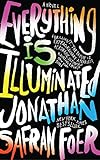 Jonathan Safran Foer’s novel Everything Is Illuminated ends with a similar excision, though aimed at an entirely different purpose. The “guileless,” Thesaurus-happy Alexander Perchov — truly one of the most lovable characters in recent fiction — guides Jonathan Safran Foer through their trip to Trachimbrod in search of the woman who saved Foer’s grandfather from the Nazis. Alexander’s grandfather accompanies as driver (though he claims blindness), and it soon becomes apparent he has his own ghosts to search for in their Ukrainian journey. Grandfather, it turns out, had betrayed his best friend Hershel to the Nazis (revealed, in the novel, in a heartbreaking, punctuation-less section), and in the end he writes a letter to Jonathan and Alexander (also called Sasha) to explain his decision to take his own life. The letter ends as Grandfather does:
Jonathan Safran Foer’s novel Everything Is Illuminated ends with a similar excision, though aimed at an entirely different purpose. The “guileless,” Thesaurus-happy Alexander Perchov — truly one of the most lovable characters in recent fiction — guides Jonathan Safran Foer through their trip to Trachimbrod in search of the woman who saved Foer’s grandfather from the Nazis. Alexander’s grandfather accompanies as driver (though he claims blindness), and it soon becomes apparent he has his own ghosts to search for in their Ukrainian journey. Grandfather, it turns out, had betrayed his best friend Hershel to the Nazis (revealed, in the novel, in a heartbreaking, punctuation-less section), and in the end he writes a letter to Jonathan and Alexander (also called Sasha) to explain his decision to take his own life. The letter ends as Grandfather does:
I am writing this in the luminescence of the television, and I am so sorry if this is now difficult to read, Sasha, but my hand is shaking so much, and it is not out of weakness that I will go to the bath when I am sure that you are asleep, and it is not because I cannot endure. Do you understand? I am complete with happiness, and it is what I must do, and I will do it. Do you understand me? I will walk without noise, and I will open the door in darkness, and I will
Like Wallace’s ending, this line is an interrupted promise, but here it is meaningfully sincere and incomplete for another reason entirely. I will is a strong subject-verb phrase, and by leaving it unfinished, Foer ends his book with nearly limitless optimism– — quite a feat considering it comes in a suicide note.
I am aware, as in all of these essays, that I haven’t said anything new or insightful on the subject of endings in general. Let me attempt something now. Unlike almost all other elements of fiction, the final lines do not participate in the project of keeping a reader reading. This may appear to grant a writer complete freedom, like the final two years of a two-term presidency — the absence of an impending re-election ostensibly allows for sweeping, public-opinion-be-damned initiatives. But in fact the last moments of a novel are its most delicate and important. If opening lines can be likened to a carnival booth runner’s shouts to passing fair-goers, the final lines are more than the prize of the game. Think about how much a reader gives a novelist — they agree to spend thousands of words listening and absorbing the novelist’s story. They are granting the novelist the rare chance to take them, via hundreds of pages, to a precise point, an incredibly particular moment that only fiction with all its complexity and length can reach. With enough trust, a novelist can take us anywhere, and the tools of narrative allow for remarkable specificity — the exact moment a marriage fails or the aftermath of a war for one family or a man’s tragic death that his whole life has seemed to point to. For writers, the last sentences aren’t about reader responsibility at all — it’s a once-in-a-lifetime chance to stop worrying about what comes next, because nothing does. No more keeping the reader interested, no more wariness over giving the game away. This is the game. This is the best time for a writer to get real, to depict reality as they see it, without compromises, without fear. The reader has stuck with you — give them something true, something honest and unquestionably yours. Take them from the promise of the opening line to those hyper-specific moments in life that take tens of thousands of words to set up — take them, as Junot Diaz did, to the beauty! The beauty!
See? It’s easy.
Now everybody —
See Also: The End of the End: Writers on Last Lines
Image Credit: Wikimedia Commons



